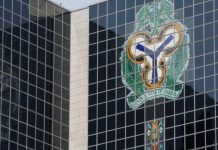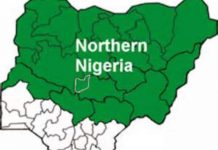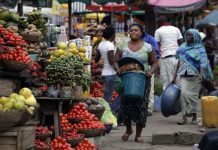The report of the National Bureau of Statistics of Nigeria said that the nation’s inflation rate reached 11.37 percent in Aril. The bureau said on the report released on Wednesday in Abuja that it’s Consumer Price Index increased by over 11.2 percent in March of this year.
The report said that the consumer price index gained for the first time in three months. The index measures the weighted average of prices of a basket of consumer goods and services including transportation, food and medical care in a nation. The government and policy makers utilize the index to counter the negative effect of inflation on the economy and masses.
According to the report, the rise in the food index was caused by increases in the prices of meat, fish, oils and fats, bread and cereals, fish, milk, cheese and egg, potatoes, yam and other tubers, fruits, and vegetables.
The Central Bank of Nigeria predicted that inflation will rise to 12 percent in 219 before moderating. It also predicted that Nigeria’s economy will increase by 3 percent in 2019 which is higher than the inflation record in 2018 at 1.93 percent.
Dr. Olatunji Arowolo, a statistician, said that the Ramadan increased the Consumer Price Index in April. The lecturer from the Statistics Department of Lagos State Polytechnic said that fasting could be a factor that led to inflation. He added that the high demand and low productivity leads to the increase in the food index and in turn raise inflation. He emphasized that people could go into panic buying before the Ramadan.
He said that panic buying in the anticipation of the fasting can lead to inflation just like we do whenever we hear rumor of impending fuel scarcity. According to the professor, the impending increase in wages might also be a factor.
The report also said that the food sub-index gained 1.14 percent in April with an increase of .2 percent points percent recorded in March.
The Central Bank of Nigeria’s Monetary Policy Committee will meet in Abuja today to discuss the renewed inflation pressure in Nigeria. During the last meeting in March 2019, Nigeria decided to cut the benchmark Monetary Policy Rate by basis points.
The members of the Monetary Policy Committee decided on the cut after they considered the global and domestic environment. They decided to limit the MPR to 13. Percent. they retained the asymmetric corridor of +200/-500 basis point around the MPR, the Cash Reserve Ratio (CRR) at 22.5 percent, and the liquidity ratio at 30 percent.







